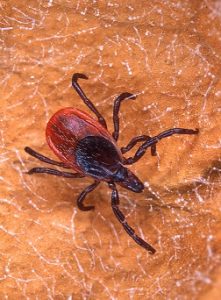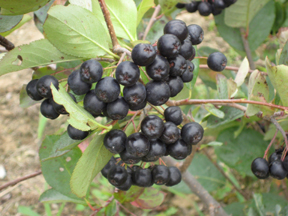Farm Scoop — September 2013
Online Form to Report Livestock Losses from Predators
The University of Maine Cooperative Extension has partnered with USDA Wildlife Services to offer an online form to record predator attacks and losses of livestock in Maine. USDA Wildlife Services will use the data to plan and implement effective control measures, and farmers and others will be able to receive annual reports of predator losses by county. The information could help farmers prevent losses through improved management and preventative measures. For more information on predator management, contact USDA Wildlife Services in Maine, 207.629.5181.
So You Want to Farm in Maine? — A Short Course for Individuals Who Want a Profitable Farm Operation
The purpose of this course is to equip participants with the business knowledge and skills to start, adapt, and maintain a profitable land-based business. It is designed for current farmers and those who want to have a farm. This multi-session course will be offered on four consecutive Tuesday evenings starting October 29, 2013 from 6:30 p.m. -9:00 p.m. The course will be held at the UMaine Extension Oxford County office, 9 Olson Road in South Paris. The cost is $50 and includes the text for the course, Starting and Running a Small Farm Business by Sarah Aubrey, and all handouts. More than one member of a farm business may attend for one fee, provided you only require one set of materials.
To register, please contact Barbara Murphy at 1.800.287.1482 (in Maine) or barbara.murphy@maine.edu. Pre-registration is required. Class size is limited to 25.
Four Season Garden/Farm
The University of Maine Cooperative Extension’s Master Gardeners and staff are offering a hands-on workshop on Four Season Gardening on Thursday, September 12, from 6:00 to 8:00 p.m. at the Wells Reserve, 342 Laudholm Farm Road in Wells, Maine.
Gardening/Farming doesn’t have to stop when the growing season ends in Maine anymore. By using simple, small, movable hoophouse structures you can start growing winter greens in late summer and keep them going right through the winter. Join us to learn the basics of building a small inexpensive home garden greenhouse including a materials list and plans for making your own. Planting schedules and recommended crops for winter greens will also be discussed.
Meet at the All Seasons Garden behind the lab/science building, and learn as we construct a hoophouse structure, provide ideas and plans, and describe which hardy greens to use and when to get them started. Dress for the outdoors and be prepared for “hands on” learning. To register, see www.wellsreserve.org/calendar. Workshop cost of $7 ($5 for members of Laudholm Trust) is payable at the event. Questions, please call 207.324.2814 or 800.287.1535 (in Maine).
The program, led by Allan Amioka, Glenn MacWilliams, and Frank Wertheim, is the last one in this year’s All-Season Gardening series brought to the Wells Reserve at Laudholm by York County Master Gardeners. The All Seasons Garden is a test bed for rotational and companion plantings and advanced composting techniques.
Lyme Disease Statistics for Maine

For all those who work outside, you should know the latest in Lyme disease statistics for your area. The data portal link from Maine CDC below will allow you to look at the history and trends of Lyme disease in Maine. Protect yourself with the proper clothing, repellents, showering right after being in brushy areas, and twice daily tick checks. Know the signs and symptoms of Lyme disease.
Some of the early signs of Lyme disease include the following:
- A ring-like rash around the area of the tick bite. The rash could resemble a bull’s eye with a clearing center and a distinct ring around it.
- Flu-like symptoms (fatigue, headache, fever, muscle or joint soreness).
- Later stage signs of Lyme disease include the following: Arthritis, Neurological (nerves) problems, and Cardiovascular (heart) problems.
If you have questions about the data or Lyme disease, please direct them to Sara Robinson at Maine CDC: 207.287.4610 (office), 1.800.821.5821 24-hour Reporting Line, or e-mail sara.robinson@maine.gov.
Consider Joining the Maine Sustainable Agriculture Society — Free
The mission of the Maine Sustainable Agriculture Society (MESAS) is to explore, develop, and promote agricultural systems and practices that allow Maine farmers to retain a greater share of consumer expenditures for farm products. This is accomplished by developing methods to reduce the need for purchased inputs and by adding value to farm production. To learn more about MESAS, visit http://mesas.org/. You can become a member of MESAS for free.

Ever Heard of Aronia?
Aronia is a berry hardy to Maine’s climate. Learn more about aronia at the UMaine Extension aronia website. The website includes several links to other university-based aronia resources, which provide useful cultural recommendations and marketing tips. Links to two US aronia grower associations are also included.
SARE Partnership Grants for Farmers & Growers
The application materials for Partnership Grants are now ready for downloading from the Northeast SARE website.
Use the “for applicants” box on the right side of the page to get proposal instructions and the budget justification template. The deadline is November 13, 2013 for awards in March 2014.
If you have questions that aren’t answered in these materials, feel free to call Northeast SARE at 802.656.0471 or e-mail Carol Delaney.
Interested in Draft Animals?
Maine has an active organization for farmers who work with draft animals (horses, mules, and ponies). For more information, visit the Farmers Draft Horse, Mule & Pony Club website or call their president, Stan Merril, at 207.583.4677.
Mainers Urged to Sign Up for Free Disposal of Banned, Unusable Pesticides
Mainers are urged to take advantage of a free opportunity to dispose of banned or unusable pesticides that they may have in their homes or elsewhere on their properties.
This free disposal program is open to homeowners, family-owned farms and greenhouses. To participate, you need to register by September 27, 2013. Registration by September 27, 2013, is mandatory—drop-ins are not permitted. To register, get details, and learn important information about the temporary storage and transportation of obsolete pesticides, go to the BPC Web site at thinkfirstspraylast.org, or call 207-287-2731.

New From UMaine Extension
- Adding a High Tunnel to Your Maine Farm: Observations from a Statewide Study, Bulletin #1026
- Rabbit Housing — Planning, Building, and Equipping Facilities for Humanely Raising Healthy Rabbits, Item #1041
Maine’s USDA Agricultural Mediation Service
This mediation service is designed to help resolve agriculture related disputes before they end up in court. For more information, visit the Volunteers of America Northern New England website.
Local Weather Application for Mobile Devices
As a farmer, you might be interested in a free app (application) called MyRadar. A satellite detects your position and provides the radar for weather in real time. For more information or to download the app, visit MyRadar Weather Radar.
Tax Tips If You’re Starting a Business
If you plan to start a new business, or you’ve just opened your doors, it is important for you to know your federal tax responsibilities. Here are five basic tips from the IRS that can help you get started.
- Type of Business. The most common types are sole proprietorship, partnership, corporation, S corporation, and Limited Liability Company. Each type reports its business activity on a different federal tax form.
- Types of Taxes. The type of business you run usually determines the type of taxes you pay. The four general types of business taxes are income tax, self-employment tax, employment tax, and excise tax.
- Employer Identification Number. A business often needs to get a federal EIN for tax purposes. Check IRS.gov to find out whether you need this number. If you do, you can apply for an EIN online.
- Recordkeeping. Keeping good records will help you when it’s time to file your business tax forms at the end of the year. Good records will help you monitor your business’ progress and prepare your financial statements. You may choose any recordkeeping system that clearly shows your income and expenses.
- Accounting Method. Each taxpayer must also use a consistent accounting method, which is a set of rules that determine when to report income and expenses. The most common are the cash method and accrual method. Under the cash method, you normally report income in the year you receive it and deduct expenses in the year you pay them. Under the accrual method, you generally report income in the year you earn it and deduct expenses in the year you incur them. This is true even if you receive the income or pay the expenses in a future year.
For more information, check out the “Business Taxes” page on IRS.gov. From there, review the special section on Starting a Business. Publication 583, Starting a Business and Keeping Records, may also help new business owners with the tax aspects of running a business. The booklet is also available on IRS.gov or by calling 800.TAX.FORM (800.829.3676).

